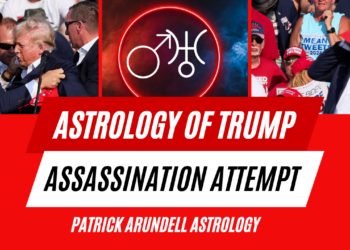Do you find it challenging to describe yourself in a resume? This article offers a few handy tips on how to make your self-presentation impressive and get the interview invitation.

Most people find it difficult to describe themselves. Listing the assets and strengths of a friend could hardly be such a difficult task. However, once it is time to talk about your own achievements, you are very likely to feel a little lost.
It would not be that important if the ability to describe yourself did not influence your job and future. Every time you apply for a new position, you have to face the “describe yourself “challenge while writing a resume. Luckily, thanks to a few tips this process can become a lot easier. Here are some recommendations that might help you.
1. Be Job-Relevant
When you list your skills and achievements in a resume, be sure to choose the ones that match the job. Read a vacancy description carefully and pay attention to the desired qualities. Do you have any of those? Great! Use them to show the employers that you are the candidate they are looking for. Mention everything that fits the job description and the company’s atmosphere. For example, you may write something like this: “If you are looking for a creative illustrator with an impressive portfolio, it perfectly describes me”.
2. Be specific and Use Numbers
A bunch of general phrases will not make you stand out no matter how great they sound. If you want to catch the employer’s eye, use facts and numbers. It will make your resume seem objective and trustworthy. Emphasize the results you achieved thanks to your skills. For example, replace “the experienced writer” with “published seventeen articles and two books”. Instead of “hard-working sales manager” write “increased the company’s sales by 2% during three months”.
3. Include Keywords
It is not a secret that recruiters use software to scan the resumes and find relevant candidates. That is why including keywords is essential for your self-description. Use the action words like “achieved”, “resolved”, “trained’, and “improved” to make the employers confident that you succeed in the previous job. The job-searching platform jobsora.com tells that the words like “ideas”, “profits”, “revenue” might also be helpful. Support the keywords with short explanations and examples. For instance, the fact that you trained five interns describes you as a leader with great managing skills.
4. Do Not Be Shy
Describing your personality and qualities can make you feel a little uncomfortable. You might be afraid to cross the line and start bragging. However, the opposite happens way more often. People tend to underestimate some of their achievements and take some skills for granted. To avoid this, imagine that you describe your good friend. Would you mention that your friend won an award? Would you tell about his volunteering experience? A resume is not your personal career story. It is a powerful marketing tool. Do not be afraid to “sell” yourself!
5. Choose the Correct Style
Apart from using the keywords, it is also important to speak one language with the employer. Check the company’s website and social media pages. What achievements do they mention? What words do they use? While some organizations prefer to keep it conservative, others look for a creative approach. Try to catch the company’s vibe and build your description according to it. Include the phrases that are commonly used on the company’s blog or website. It will convince the employer that you fit their team.
6. Pick Reader-Friendly Font and Size
Even if you create a very persuasive description for your resume, the inappropriate font and size might ruin it. The recruiters prefer different fonts. There is no perfect option. However, it has to be easy to read and fit the text size. It is better to avoid extraordinary fonts. They could make a wrong impression and distract a reader. Make sure that the letter size is convenient for the reader. Use larger letters for the headings to improve the document's structure.
7. Make it Error-Free
It might seem obvious that your resume should be error-free. Nevertheless, typos and grammatical mistakes keep ruining candidates’ descriptions. The errors distract the reader from what you write. They also make it seem that the applicant is careless. It would be hard to believe that you are attentive to details when there are several typos in your resume. Even if you are sure of your knowledge of grammar, no one is protected from autocorrect that choose the wrong word. Thus, it is better to double-check your resume or give someone else to read it.
What Should Not Be Included in Your Resume
While it is good to know how to describe yourself in a resume, it is also important to mention what information should be omitted. Here are the things you avoid when you present yourself in this document.
1. Personal Information
When you write about yourself, you should avoid mentioning your age, marital status, race, or religion. It is illegal for the employer to ask about these things. Even if it may seem relevant, disclosing these details is not a wise thing to do. For example, there is no need to prove your multitasking abilities and explain a career gap mentioning that you are a single mom. The employer also does not need to know that you are a retired person looking for a second career. This information is too personal to be in your resume.
2. Hobbies
Although the hobbies may describe your personality better, it is not appropriate to mention them in your resume. Your passion for yoga, fishing, or hiking will not show if you are a good match for the job. Thus, these details will only be a waste of space. Only some hobbies may be relevant in rare cases. Unless you have an impressive job-related blog or participate in a well-known association, including hobbies in a resume is risky.
3. Buzzwords
While using the keywords is helpful and necessary, you should not confuse them with buzzwords. The cliché phrases like “go-getter”, “thinking out of the box”, “synergy”, and “best of breed” will not impress the recruiters. Try to avoid typical words not to make your resume get lost in a pile of other similar papers.
These are the basic tips on describing yourself in a resume. Remember that your main goal is to evoke the interest and get invited to the interview. When you finish writing, have a fresh look at your resume. Would you hire yourself? Would you like to find out more during the interview? If you answered yes without doubts, your resume presents you well.













![Everything You Ever Wanted to Know About 9/11 Conspiracy Theory in Under 5 Minutes [VIDEO] | by James Corbett](https://consciouslifenews.com/wp-content/uploads/2018/09/911-a-conspiracy-theory-120x86.jpg)
